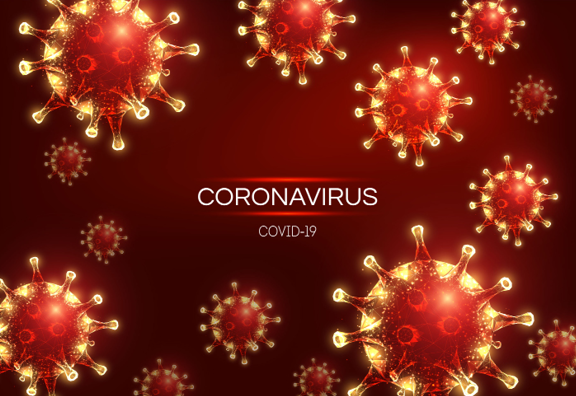
March 24, 2020
The insurance impacts of the COVID-19 pandemic are unclear, but experts agree that the effects will reverberate through the industry and economy for years to come. The widespread and unprecedented impact to business operations and affected workforces have employers looking for potential insurance coverage solutions. The Fedeli Group is dedicated to assisting our client-partners through this process, and offers a general review of potential COVID-19-related coverage implications for the following lines of insurance:
Property and Business Interruption
Many businesses will face economic impact from COVID-19. The resulting impact will likely raise questions about property and business interruption insurance. Questions have already emerged about the potential costs of sanitizing and testing property due to a COVID-19 exposure, direct business interruption coverage for lost income, and the possibility of contingent business interruption coverage due to the COVID-19-related shutdown of a suppliers. Answers to policy-specific questions will always depend on the terms and conditions of an individual policy and on the specific facts underlying the potential claim. Notwithstanding virus-specific exclusionary language, the biggest hurdle to coverage for a COVID-19-related claim is proving a direct physical loss. In property policies, coverage generally requires direct physical loss to insured property by a covered peril. Additionally, business interruption coverage requires that the interruption itself result from the direct physical loss to the insured property by a covered peril. General carrier guidance seems to indicate a narrow interpretation, leading to denial of business interruption coverage. Government issued mandates, resulting in the closure of many businesses, have policyholders looking to civil authority coverage that generally does not require physical damage to the insured’s property, but rather applies when an order of civil or military authority impairs access to the insured’s property as a result of “insured physical damage” within a specified distance of the insured’s property. This coverage is contingent on actual physical damage and not fear of contagion, so generally would not be applicable to the impact from orders such as, limiting the size of gatherings, restaurants to take-out service only or even shelter in place. However, time will tell how carriers and courts interpret “physical loss” in the context of COVID-19, and with the widespread economic impact, governmental intervention is also a possibility.
General Liability
Alleged legal liability to organizations, including, but not limited to, negligence or contractual liability, may fall under a commercial general liability insurance policy. Careful review will need to be made to determine if an “occurrence” falls within the policy’s identified damage requirements and are outside of any potential coverage exclusions. Carriers may raise exclusions such as:
Workers’ Compensation
State laws vary, but generally, an employee must become injured or ill in the course and scope of employment to qualify for workers’ compensation benefits. Further, the typical standard holds that, for coverage to apply with respect to an occupational disease, an employee must have been at greater risk for the condition than the general public. Determining whether an employee contracted COVID-19 in the course of their employment, and whether they were at greater risk for the condition than the general public, will require a fact-specific analysis. Among other things, this will require consideration of the nature of the work performed by the employee. Coverage may be more likely for an employee working in a healthcare setting in which they were required to care for COVID-19 patients, and potentially less likely for an employee working in an office setting with no engagement with the public. However, it may take some time before specific determination of a covered occupational illness, since each state governs its own workers’ compensation board and statutes.
Employers’ Liability
This coverage part, also referred to as part two of the workers’ compensation policy, provides protection for the insured employers’ liability of employees’ work-related bodily injury or disease, other than liability imposed by a state’s workers’ compensation law. With COVID-19 exposures, negligence outside of the liability of a jurisdiction’s workers’ compensation law may include:
Application of this coverage varies state to state, and while some provide coverage for both indemnity and defense, coverage in Ohio is limited to defense only.
Directors & Officers Liability
Depending on the specific allegations, coverage may be available for an entity and/or various individuals including but not limited to directors & officers. The most likely scenario for claims will stem from material misrepresentation of preparedness and lack of due diligence in preparation for and/or response to the impact of COVID-19 that negatively affected financial results, stock price or the entity’s reputation.
Employment Practices
Employers may face employment practices liability claims if they exhibit any discriminatory behavior in their pandemic response policies or fail to keep their employees’ safety as a top priority. Employers should review communicable disease and travel policies, as well as anti-harassment and bullying policies. Additionally, Employers should be aware of potential wage and hour liability issues that could arise with employees working remotely.
In Summary
The impact of COVID-19 continues to evolve with new or changing requirements/restrictions almost daily, increasing the likelihood of related claims. The above review is a general overview of potential coverage implications and is not intended to be comprehensive or represent the absolute determination on any specific insurance coverage issue. Coverage determinations for COVID-19-related claims will come down to specific policy language. Consequently, please contact your Fedeli Group team to discuss any questions or coverage concerns you may have. Subsequently, if you wish to make a claim, we will assist you and submit the claim on your behalf to the appropriate insurer for definitive coverage determination.
Still have questions? Let’s talk.